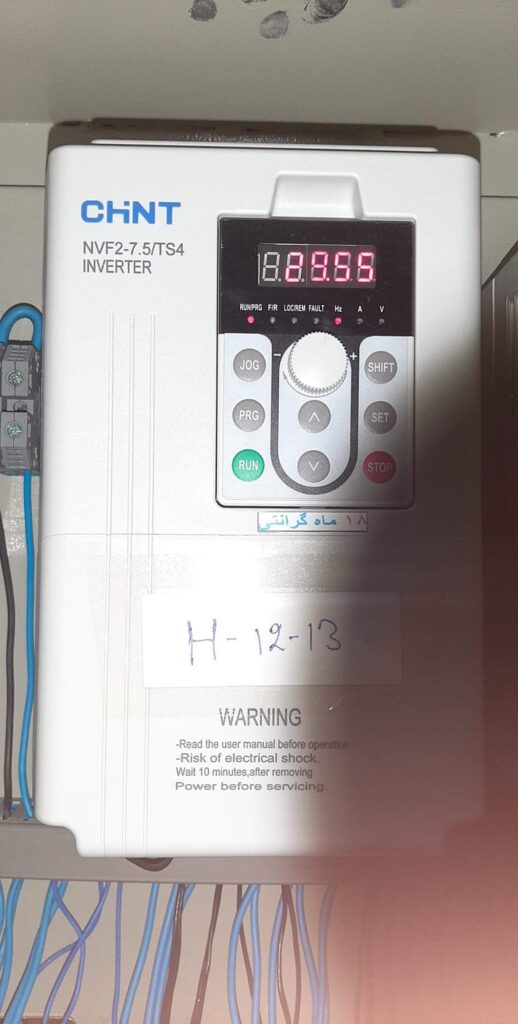Five Keys to Effective Technical Communications

Today’s post is in response to a request for help on a social media technical forum.
Here is a picture of the Variable Frequency Drive (VFD) the person needed help with:

and here is what they wrote:
“How can i control the motor by computer if i use this driver
What I need ?
I used mounting switches and screws”
Analysis:
Some other details about the post: The requester was not from a country where the native language is English. The title “Eng” preceded his name, implying he is an engineer, and his profile picture showed a guy maybe 30+ years old with what looked like a petrochemical plant behind him.
Some of the responses he received were not particularly nice, and several people gave equally cryptic advice to help him solve the problem. I will post some of these at the end of this article.
I do feel bad for the guy, because he truly did seem to want help, and didn’t really know how to ask for it. For those of you in industrial fields, you can see that much more information about the application is needed, and it would take some time to dig around and help the guy solve his problem.
5 Important Keys:
- Include Relevant Information, Exclude the Irrelevant. In this case, mounting switches and screws don’t appear to have anything to do with how to control the drive, but perhaps this is a language issue. I don’t know what a mounting switch is, possibly he is talking about mounting switches for manual control. There is a lot of relevant information missing also, perhaps they would have provided more information after engaging with a responder.
- Use Correct Terminology. In addition to the confusing term mounting switches, the writer used the word driver, where I can assume he was talking about the drive or VFD. Unfortunately in English, the words are both technical terms, so it is easy to get confused. He also used the term computer, which uses software drivers to communicate. Where he used the word computer, he also might have meant Programmable Logic Controller (PLC), which is a type of computer.
- Is Spelling and Grammar Important? I mention this because if you are just asking for help informally on a forum, using a lower case “i” or misspelling a word is not as important as if you are writing a technical document for public use, or building a resume. The main point here is to get the information across. At the same time, misspellings and grammatical mistakes can make people less likely to respond and take you seriously. To maximize the chances of actually getting help, a writer should take their time crafting the message. After all, it takes a bit of effort to put the picture and post on the social media forum in the first place, might as well do it right!
- Keep it as Simple as Possible. This is where I don’t do very well. I do a lot of technical writing, books, this blog and on my Automation Academy documents. My grading on readability by analyzers is that my sentences are too long, and my wording could be simpler. This hurts me a lot when writing marketing copy, where you should use short, meaningful sentences.
- What about Acronyms and Trade Words? Your copy should generally be written appropriately for your audience. You don’t always know who your audience will be though. If you read back through this post, you will noticed that I put the acronyms VFD and PLC in parenthesis after spelling out the words. My industrially savvy readers know what these mean, but someone in say, marketing might not. They might still have to look up the term, and I mentioned that a PLC is a type of computer in the text.
Here are some of the responses to the request for help with my comments on parenthesis:
“Yes you can if there is any communication port like rs 232 or 485” (True, but lots more information needs to be provided to make it work. What is the control sotware if you are using an actual computer? This is where that word “drivers” is important).
“You need an wireless lan network to switch on/off or rpm tuning operation.
Tell briefly what you want.” (Not true and misleading. I will agree with telling briefly what you want though).
“If you want to control linear screw as position control the best option is servo motor control” (I didn’t see anything in the question or pictures implying that this was used for a linear screw. Otherwise a true statement, but probably not pertinent).
“I think this guy is talking about scada system.hahahaha” (This is one of the things you sometimes get when you don’t word things well, people laugh at you instead of offering help).
“By computer??? That’s not very specific. Are you talking about uploading the vfd parameters? Controlling the vfd from a pc with a serial connection? Controlling the vfd with I/O connections from a PLC? You make no sense and it seems apparent you need to read the manual” (My initial thoughts and this asks some pertinent questions without being too snarky. The guy can actually get some valuable questions out of this that he needs to ask about the application).
My Automation Academy project will be including some help and self-evaluation tools on technical writing. Since a big part of my target market is technicians and engineers who need to improve their skills, this may be as important as the PLC and HMI classes I teach. It also applies to writing resumes, which is a module in my Path course under Careers.
